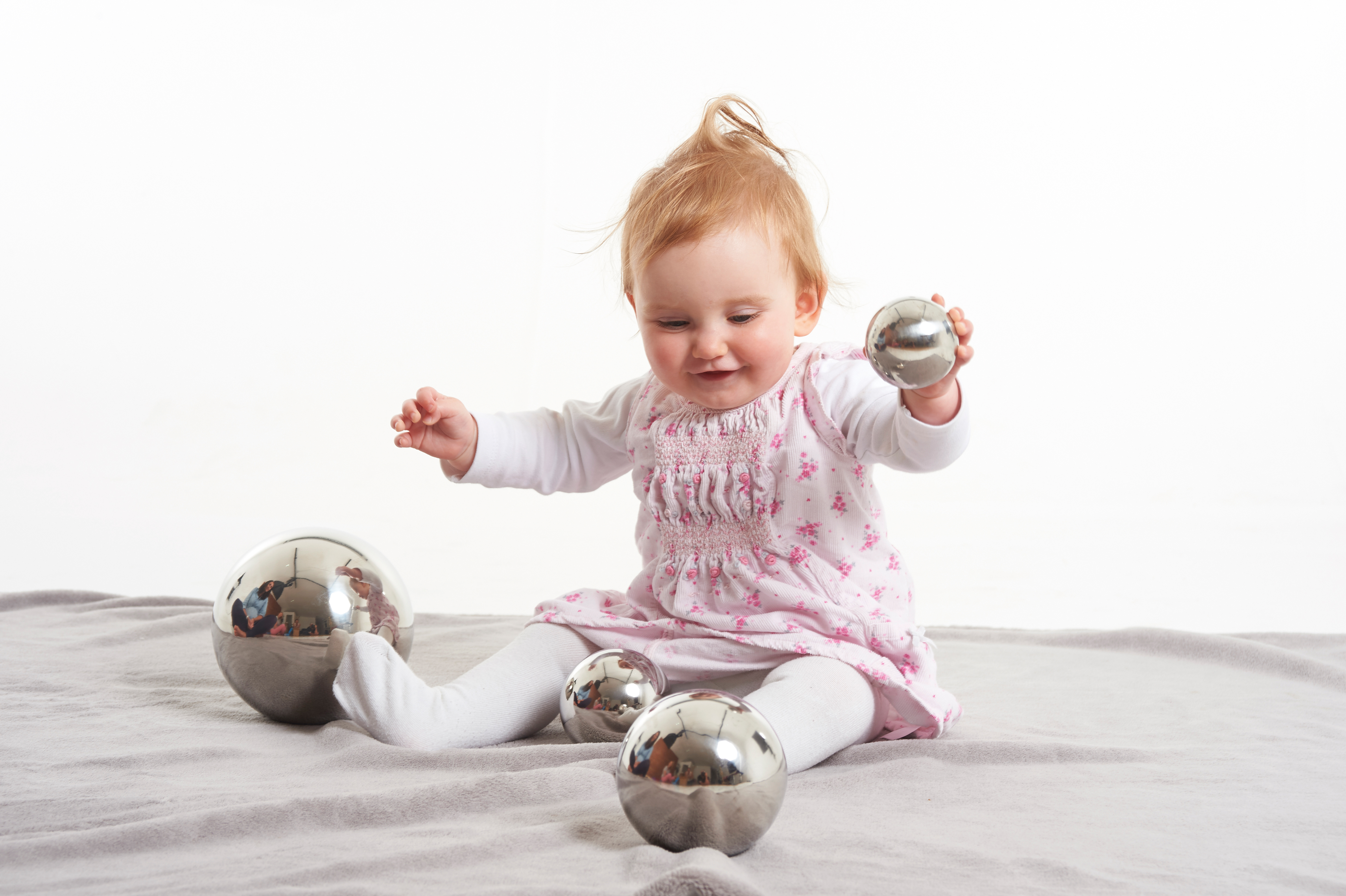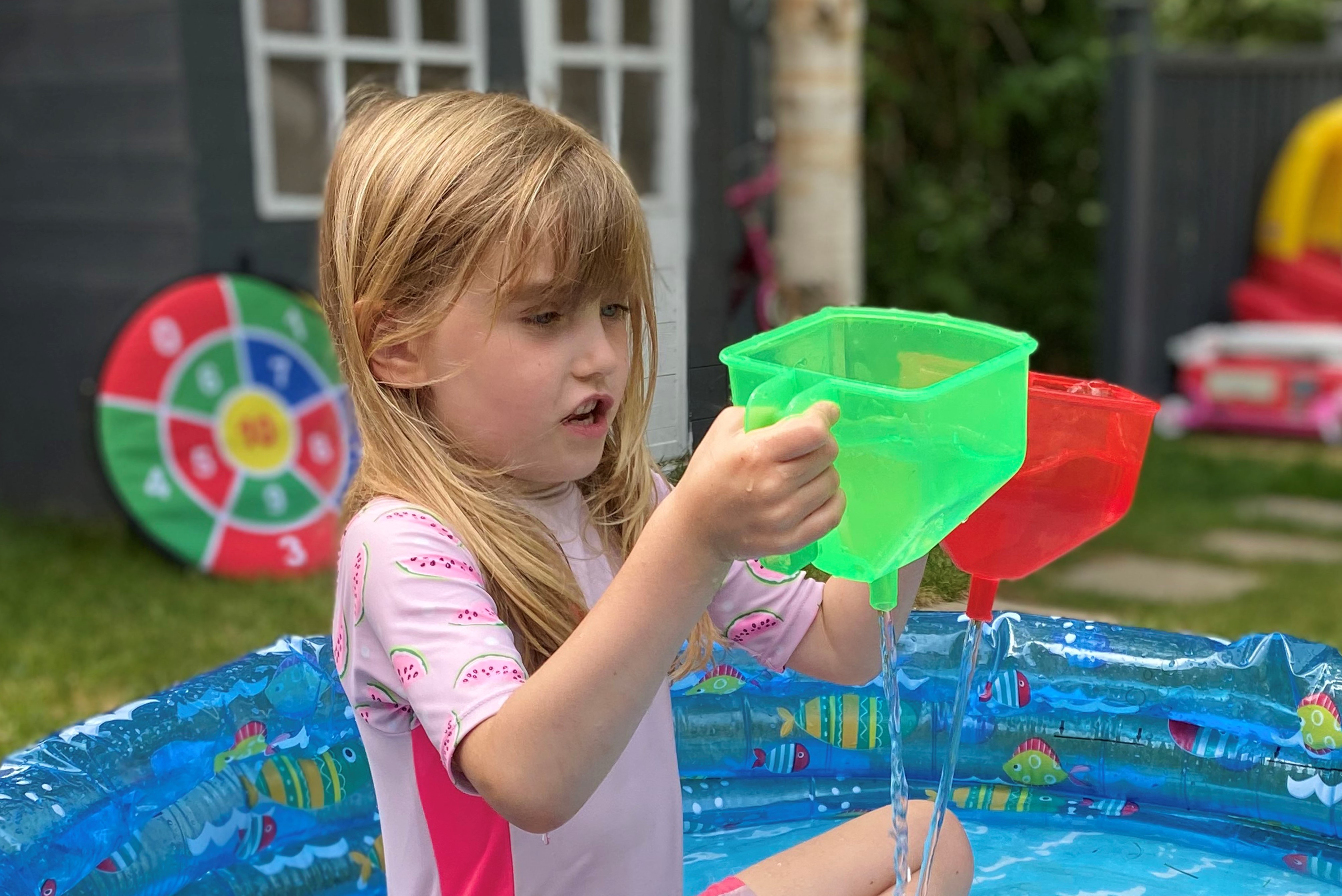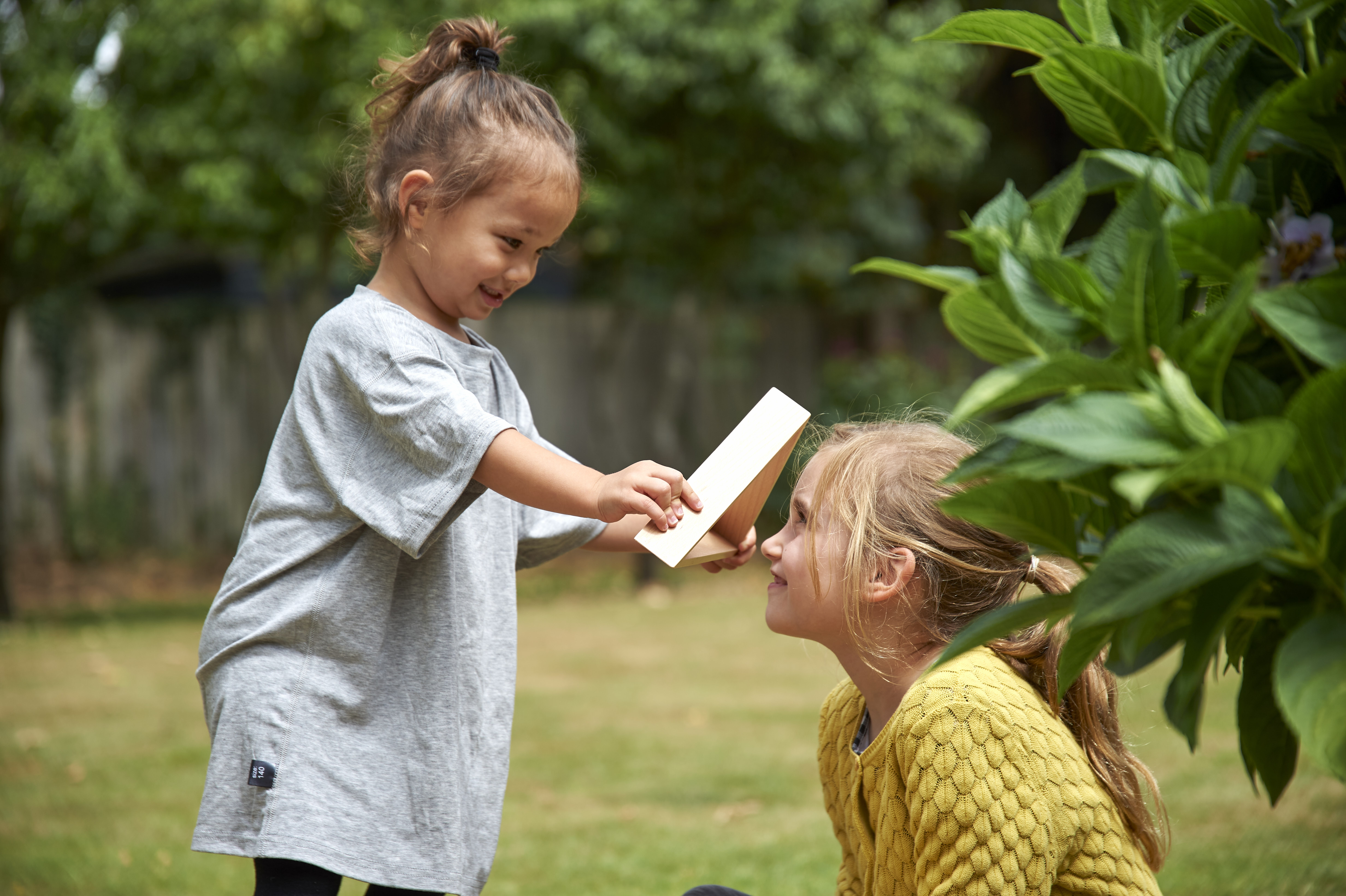
Climbing up trees, hanging off monkey bars, crawling through tunnels and rolling down slopes are just some of the large-scale movements that children naturally gravitate to in their early years. This form of active play, where children are free to explore their environment using their whole bodies, is vital for healthy brain development.
Not only does it wire-up children’s brains by building the central nervous system, it also fine tunes the smaller muscles in their hands and fingers so that they can eventually learn to write.
Children are dependent on their gross motor skills to balance, walk, run and manipulate objects, which is why physical development is recognised as a prime area in the Early Years Foundation Stage (EYFS) framework.
Reaching out
It starts with babies, who need daily opportunities to move freely on their tummies and back, in a variety of stimulating, safe spaces. During these unrestrained movements, they explore their hands, feet and the space around them – for example the textured blanket or the grass that they are lying on – and they eventually master the skill of rolling from their back to their tummies.
Practitioners can place colourful, noise-making toys slightly out of reach to encourage babies to move toward them and roll over.
Former primary school teacher, Danielle Manton-Kelly, known as The Enchanted Nanny, says that TickiT’s set of four Sensory Reflective Colour Burst Balls, £29.99, tick every box when it comes to supporting babies’ gross motor development.
‘Every sense is engaged in such a way that movement is a given. The feel of the balls themselves, their coolness and smooth touch, the way that the light bounces off the mirrored curve and the fact that they move freely, invites not only deep engagement but an instinctive desire to grab, roll, clamber reach and eventually crawl.
‘They are a movement magnet in one little sphere and the magical secret weapon of any parent or childcare practitioner,’ she adds.
After mastering the major milestone of crawling, which builds up the muscles in their shoulders, arms, neck, legs and fingers, infants will soon be pulling up, cruising around furniture and walking unaided.

On the move
As children gain more confidence on their feet, they will be ready for more energetic play, such as running and chasing games that strengthen their heart and lungs. Going on nature walks, scooting around the playground, pushing wheelbarrows, tumbling on mats, jumping off structures and balancing on logs and planks are just some of the outdoor activities that help develop overall strength, balance and agility.
Here are some examples of activities and resources to include in your outdoor continuous provision:
Sand and water play is a rich sensory experience that helps strengthen the large muscles in children's arms, shoulders and core. As they dig and scoop sand; pour water from one container to another and pat sand into buckets, they are using their leg muscles to stabilise themselves as they coordinate their upper body movements. TickiT’s set of six Translucent Colour Funnels, £17.99, are great for investigating volume and are the perfect size for small hands.

Ball games encourage children to play, interact and socialise. They are important for a child’s physical development, refining both fine and gross motor skills as they pick up and throw or catch the ball. They also help with balance and overall mobility, and they encourage children to share and take turns.
Children will enjoy rolling and bouncing on TickiT’s clear inflatable Constellation Ball, £14.99, which contains thousands of tiny colourful plastic beads. They can also practice throwing bean bags or balls into TickiT's Giant Catch Net, £89.99 or its freestanding Basketball Stand, £79.99.
Gardening provides endless opportunities for children of all ages to get physically active and connect with nature. Babies will enjoy crawling through the flower beds feeling the soil on their skin. Toddlers love to use their large muscles to dig up the soil and haul watering cans and buckets of water over to their vegetable patches. They will also have fun pushing trolleys and wheelbarrows around and transporting natural materials such as soil, water and stones by hand.
Ensure that magnifying glasses are close at hand so that children can explore earthworms or wriggling worms in more detail. TickiT’s Rainbow Viewers, £22.99 for six, are great for up-close inspection.

Den building is a great construction activity that promotes gross motor development. Children need to use their strength and coordination to carry around branches and logs, while often walking on uneven ground, which requires balance and spatial awareness.
Here are some more popular TickiT resources for developing motor skills.
Motor Skills – TickiT
